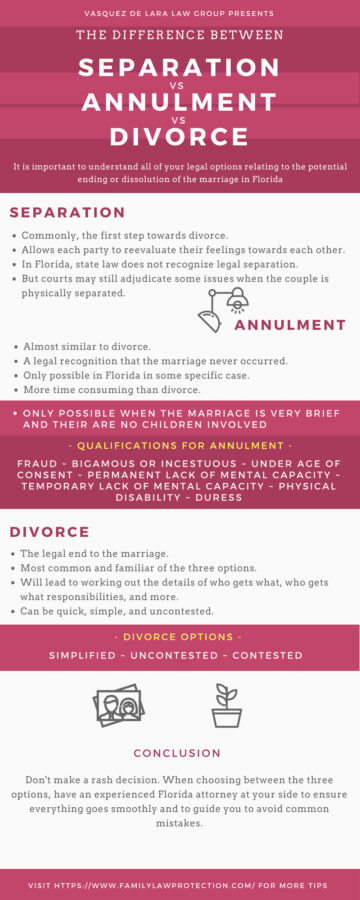When two people enter into a marriage, they typically hope for a lifetime of love and happiness. However, not all marriages last, and sometimes, the best course of action is to seek an annulment. In this comprehensive guide, we will delve into the intricate details of annulment, shedding light on what it entails, its legal implications, and the emotional aspects that accompany it.
What is an Annulment?
An annulment is a legal procedure that declares a marriage null and void, as if it never existed. Unlike divorce, which ends a legally valid marriage, an annulment erases the marriage from the record books. It essentially declares that the marriage was invalid from the beginning, for various reasons.
Grounds for Annulment
Annulments are granted under specific circumstances, known as “grounds for annulment.” These grounds can include fraud, bigamy, impotence, underage marriage, and more. Each jurisdiction may have its own set of grounds for annulment, so it’s crucial to consult with an attorney who specializes in family law to understand the options available in your area.
The Annulment Process
Obtaining an annulment involves a legal process that varies depending on the jurisdiction and the circumstances of the marriage. Generally, it requires filing a petition, providing evidence to support the grounds for annulment, and attending court hearings. The complexity of the process underscores the importance of legal counsel.
Annulment vs. Divorce
Annulment and divorce are distinct legal processes. While divorce ends a valid marriage, annulment declares the marriage null and void. Divorce typically involves the division of assets and the establishment of custody and support arrangements, whereas annulment often leaves parties without the same legal entitlements as divorced couples.
Legal Implications of Annulment
Annulment can have far-reaching legal consequences, affecting property division, spousal support, and child custody. Understanding these implications is crucial for individuals seeking an annulment, as they may differ from those associated with divorce.
Emotional and Psychological Aspects
Annulment can be emotionally challenging, as it often entails the acknowledgment that the marriage was never valid. The emotional toll on both parties can be significant, and seeking counseling or support from professionals is advisable.
Common Misconceptions
There are many misconceptions surrounding annulment, such as it being a quick and easy way out of marriage. It’s essential to dispel these myths and understand the reality of the process.
The Role of an Attorney
Navigating the annulment process is not something to be done alone. An experienced family law attorney can provide guidance, ensure all legal requirements are met, and advocate for your best interests.
Financial Considerations
Annulment can impact your financial situation, including property division and spousal support. Consulting with a financial advisor can help you plan for the changes that may occur.
Annulment and Religion
Annulment can also have religious implications, especially for individuals belonging to religious groups that have specific rules regarding marriage and annulment. It’s important to consider both legal and religious aspects when seeking an annulment.
Pros and Cons of Annulment
Like any legal process, annulment has its advantages and disadvantages. Understanding these can help you make an informed decision about whether it’s the right choice for your situation.
Real-Life Annulment Cases
Exploring real-life annulment cases can provide insights into the complexities and outcomes of annulment proceedings.
Conclusion
In conclusion, annulment is a legal process that dissolves a marriage, declaring it null and void. It comes with a unique set of considerations, from legal implications to emotional and financial aspects. Seeking professional guidance is essential for anyone considering an annulment.
FAQs on Annulment
- Is an annulment the same as a divorce? No, an annulment declares a marriage null and void, as if it never existed, while divorce ends a valid marriage.
- What are some common grounds for annulment? Common grounds include fraud, bigamy, impotence, underage marriage, and lack of consent.
- How long does the annulment process typically take? The duration varies depending on jurisdiction and circumstances, but it can take several months.
- Can I get an annulment if I’ve been married for a long time? Annulments are typically granted for marriages of shorter duration, but it depends on the specific circumstances.
- Do I need an attorney for an annulment? It is highly recommended to consult with an attorney specializing in family law to navigate the complex process effectively.








